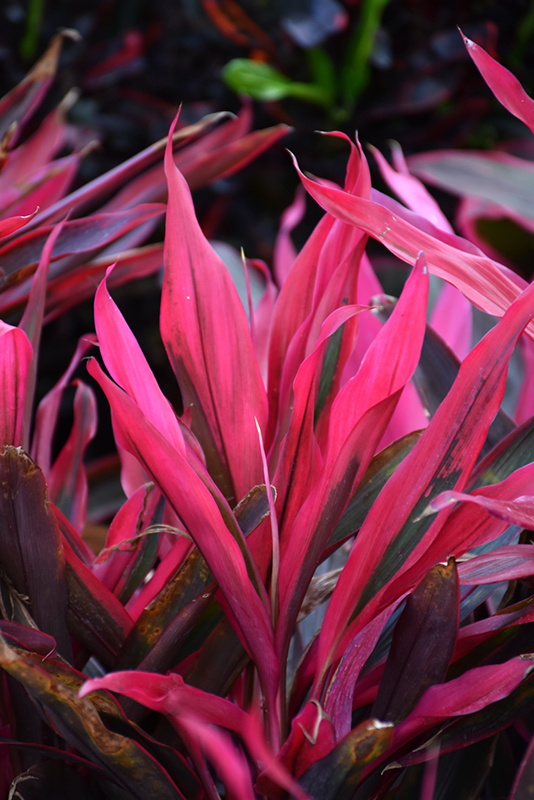5 feet
3 feet


(annual)
False Dracaena
Maria Cordyline is primarily valued in the landscape or garden for its ornamental upright and spreading habit of growth. Its attractive sword-like leaves emerge burgundy in spring, turning hot pink in color with showy burgundy variegation and tinges of green the rest of the year.
Maria Cordyline is an open multi-stemmed annual with an upright spreading habit of growth. Its relatively coarse texture can be used to stand it apart from other garden plants with finer foliage.
This plant will require occasional maintenance and upkeep, and should never be pruned except to remove any dieback, as it tends not to take pruning well. It has no significant negative characteristics.
Maria Cordyline is recommended for the following landscape applications;
- Accent
- Mass Planting
- General Garden Use
- Container Planting
- Hanging Baskets
Maria Cordyline will grow to be about 5 feet tall at maturity, with a spread of 3 feet. It has a low canopy with a typical clearance of 2 feet from the ground. Although it's not a true annual, this plant can be expected to behave as an annual in our climate if left outdoors over the winter, usually needing replacement the following year. As such, gardeners should take into consideration that it will perform differently than it would in its native habitat.
This plant does best in full sun to partial shade. It does best in average to evenly moist conditions, but will not tolerate standing water. It is not particular as to soil type or pH, and is able to handle environmental salt. It is somewhat tolerant of urban pollution. This particular variety is an interspecific hybrid.
Maria Cordyline is a fine choice for the garden, but it is also a good selection for planting in outdoor containers and hanging baskets. With its upright habit of growth, it is best suited for use as a 'thriller' in the 'spiller-thriller-filler' container combination; plant it near the center of the pot, surrounded by smaller plants and those that spill over the edges. It is even sizeable enough that it can be grown alone in a suitable container. Note that when growing plants in outdoor containers and baskets, they may require more frequent waterings than they would in the yard or garden.
